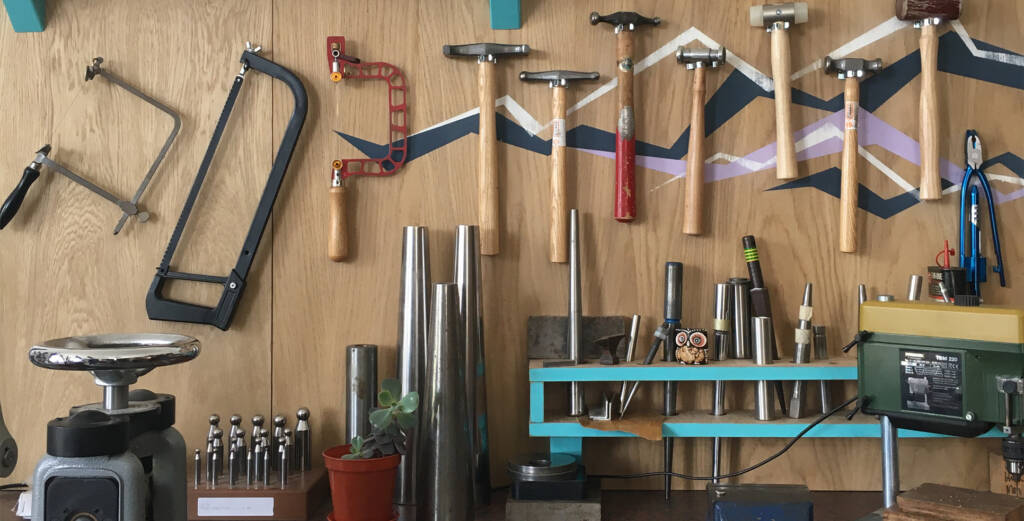
16.05.23

Often, these projects sit on a foundation of an individual’s particular passion for their chosen creative field but end up providing more benefit to the broader community than was ever expected.
This time, we chatted to Islay Spalding, a Dundee-based jeweller and owner of Double Door Studios, a workshop and exhibition space that’s also home to jewellers Christina Vernon, Holly McAfee, Ieva Jankovska and local businesses The Candle Bothy (run by Sophie Siegel) and HungUpFrames (run by Shona Spalding). She took us through the process of setting up the studios, and we discussed juggling running the space alongside being a jeweller, and the importance of building a reliable team.
Creative Dundee: Tell us a little about how the idea for Double Door Studios came about!
Islay Spalding: So I had an idea that I wanted to have a bigger studio space than the one I was in and a space other people could have workspace too, so we could share tools and equipment sharing, have a bit of a support network, you know, create some strength in numbers. Somewhere where I could have customers come in to talk about commissions, somewhere I could have a cabinet of work. I think it’s a lot of makers’ dream to have that kind of space. I went through a few variations of that idea; at first, thinking it would be good to have a retail space with cabinets local jewellers could rent, then focused more on the workshop side of things. And at first, I just kept an eye on different places that were for rent, but I realised pretty quickly that just like buying a house, if you can afford to buy, it’s going to be cheaper. Buying a place started becoming an option for me, and frankly, I could only look into it because my Dad had given me the deposit. I chose to do this instead of buying a house or a flat; I don’t own where I live and I chose to stabilise my business instead of my personal life because I see them as pretty intrinsically tied. If I don’t have a business, I don’t have a personal life and I’d rather sleep on the floor of a studio than be working in my living room.
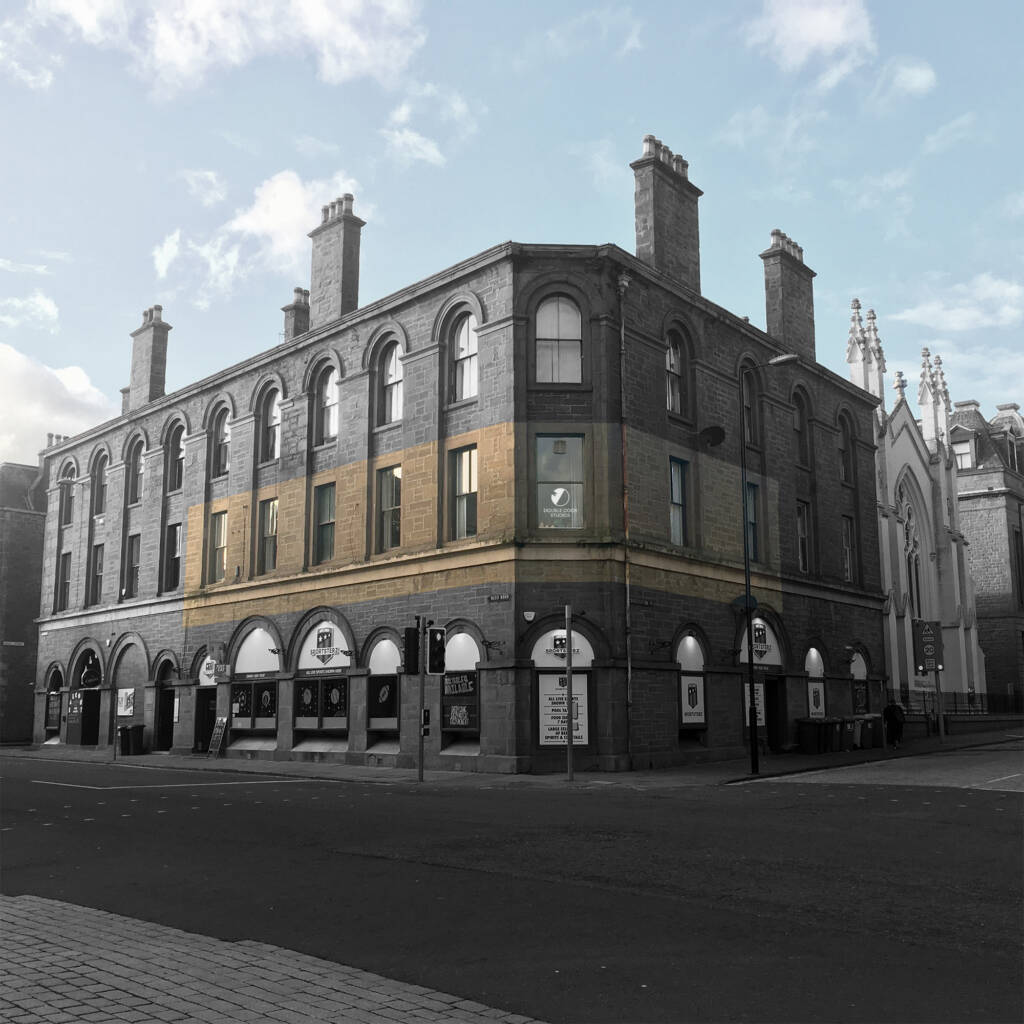
CD: How did you go about finding a space?
IS: I started by looking for commercial spaces for sale, everything from shop fronts to an industrial space out the back of Dundee. I was going and viewing spaces with estate agents, not really knowing what I’m looking for or the questions to ask, but the more I did it the more I learned. And I was watching a lot of house programmes at the time too: morning Homes Under the Hammer episodes became research. I was looking at spaces that were between £80,000–£120,000, and I actually got very close to buying a shop. I had to get a survey done on that, which meant very quickly I was having to spend thousands of pounds of my own money, which to be completely honest, I was scraping the barrel to raise. Luckily I had a clear credit card and had been good with that so I had a clear credit limit, but it was really tight and a total gamble. It’s a gamble I was very aware I could do, because if I needed to, I could always move back in with my parents, and I had a certain amount of a financial safety blanket, which absolutely helped. But it was scary. Luckily, I got a good couple of big commissions around that time that saw me through. It’s funny, when you’re in this business, it can be one or two jobs that sort you out.
CD: And how did you go about finding people to help you through the process of buying somewhere?
IS: At this point, I was dealing with solicitors. I spoke to a financial advisor too, who was someone a friend on Facebook had recommended to me. They were the ones who pointed me in the direction of a mortgage broker, and the mortgage broker, in particular, was really good, he gave me a real kick up the bum to go and do it. He made me write a proper business plan with financial projections which he helped me with, but I also had to do that kind of work, inputting things into spreadsheets while on a family holiday, which was a bit mad! And then, after all that, I ended up getting a mortgage, or a bank loan technically, from my actual bank where I’ve banked for years. I guess what I was doing at that point was just making my money lender believe in me.
CD: How did you find this space you’re in now?
IS: It was somewhere I happened to be passing a lot, and it’d been on the market for a while. When I saw it at the viewing, it was so much bigger than I thought it was going to be from the outside, and the space was great and so full of light. I felt it was right, so I got another survey done, which was another £1000. When that was all clear, I said okay, let’s put an offer in on the condition that I got my planning permission, which was accepted. That was the next thing – I had to make sure I could actually run my business from here.
CD: What was the planning permission for? What was that process like?
IS: So because it was an office space beforehand, I had to change it to being registered as a workshop. And because a jewellery studio doesn’t fit neatly into one of the predetermined categories, it wasn’t straightforward. I actually found that bit really tricky to understand a lot of – I’m not great with huge documents of words and working through that or filling out extensive forms. In the end, I got really lucky because I was actually delayed waiting on a flight and I got chatting to the woman next to me and because this planning permission stuff was all that was on my mind at that point, I started talking about what I was trying to do and how I was struggling with it. It turned out she was a planning officer in Inverness, so we did a swap; she wrote my planning proposal for me and I made her a kilt pin in exchange for her son, which felt like such a win! That’s the kind of thing you need, you know?
I was able to speak to her in layman’s terms about what I needed and she was able to translate that for me into a document, and I think that’s a big thing that’s missing from that process. I got lucky, but if there was somebody or something that could help with that bit, that would be amazing. I did also reach out to the council, but they weren’t the most supportive. I know a lot of people can do that kind of thing really easily, but I think for a lot of creatives, that is a really, really hard bit. That lack of support is a real barrier.
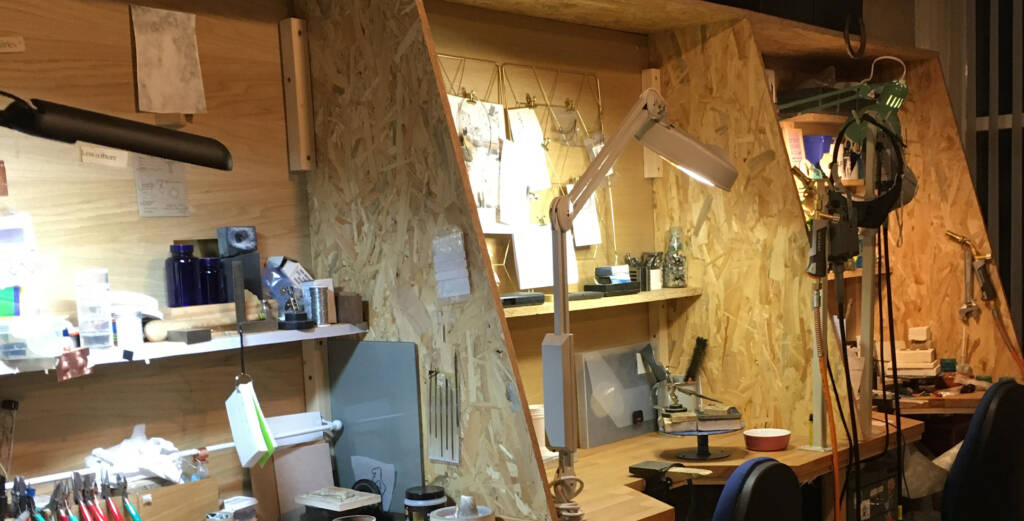
CD: Did you know who your tenants were going to be at this point?
IS: Mostly, yeah! Christina was already working with me a day a week, so when I was still looking at shops, I asked her whether she’d be up for coming with me and being a tenant in the studios and she said yes. Which gave me a bit of a confidence boost, like, “Yes! I’ve got one!”. And then I started putting the feelers out for others. I feel like we’ve always had quite a close network of jewellers in Dundee: I ran the Association for Contemporary Jewellery group here for a while and after that, I set up the Dundee Jewellers Collective group, which is a bit of a floating entity that we use for skill and tool sharing. We were doing pub meetings and organising an exhibition at Wasps, and because I was working with other jewellers to organise that, I got the opportunity to see who was good to work with. That’s how I met Ieva, and really liked how she did things and just got involved, and that’s how I met Holly as well. Holly is just one of these people who stands up and takes the job, which is what you need in a team.
Everyone obviously has different levels of commitment that they can give at different times in their life, but I wanted to find a group where people would take it upon themselves to know and take their share of the work. I guess that was really inspired by my experience within pipe bands; I’ve played in them all my life and being part of something where, you know, it’s an unpaid hobby, we pay to do it, but people give over so much of their life to it. The passion and commitment involved, working as a team towards this sort of shared goal. I’ve been around that sort of level of commitment all my life, and I guess I wanted to replicate that in my own way too.
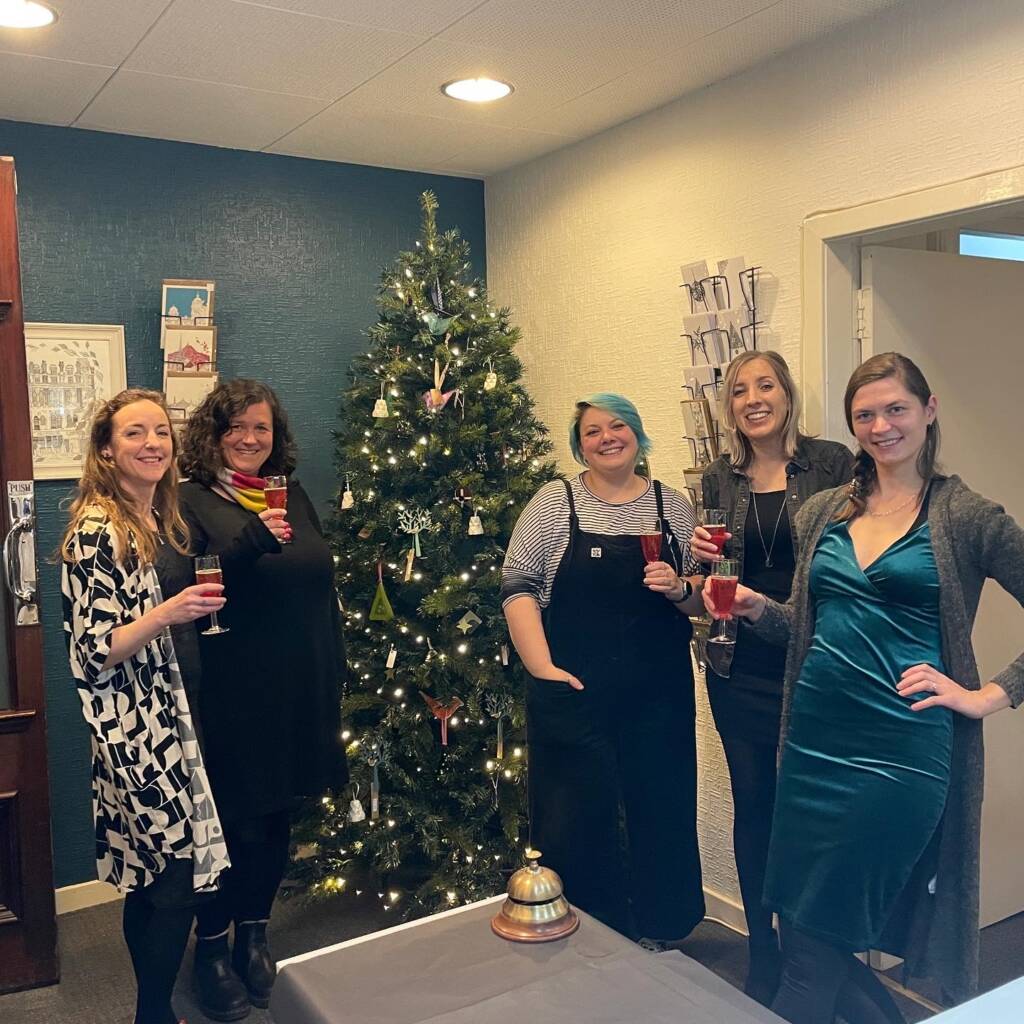
CD: So you’ve got your team, you’ve got your space. How did you decide how you were going to run and operate?
IS: Double Door Studios is an Unincorporated Association, which is the same kind of setup as something like a sports club. We’ve got a bank account, a constitution, a committee we’ve all got roles on. We do an AGM, but that’s about all we have to do legally. We all collaborate, we all own or don’t own the Double Door Studios brand. And that was something I thought a lot about as well, if we should be a CIC (Community Interest Company) or a Limited Company but I don’t think it’s necessary for us. I might just have a very chilled accountant but on his advice, he sees no reason to do more paperwork for no real extra benefit.
That sort of fits my ethos as well: we’re holding each other accountable in this way that you’re all in this together, and we trust each other. I do most of the marketing, Sophie, Holly, and I do bits of treasurer roles, Holly’s the main secretary, Ieva does the website, and Christina’s our Health and Safety Officer, so we all contribute to running it. We’ll do our bit for the community naturally, I don’t need to have to legally write a report on it because doing that isn’t my strong point. It would be stupid for me to tie myself to having to put in that kind of work when it’s not necessary.
CD: How long did the process take you, all in?
IS: The whole thing took about two years. I got the keys in November 2019 and spent Christmas at my old studios and then 3rd of January, me and Ieva were in here ripping up the carpets. It took us a couple of months to sort this place out and move our studios here, and then we were due to have our opening party in April 2020. But obviously, COVID happened! So it was a completely different start than the one I’d been building up in my head. But honestly, the break it gave us was good too, in a way. I was mentally knackered from all the ‘will it, won’t it?’ of getting the place, it had been a big emotional drain. I was scared, you know? I felt it was a big, scary thing to do. But now I’ve done it, I’m totally glad I have. It’s given me a lot of confidence.
CD: Obviously COVID affected what you were able to do – how did you navigate that time?
IS: I mean, it’s funny, if you want to talk truthfully about money, having Double Door Studios actually put me in this position to get a good amount of COVID grant money, which I wouldn’t have gotten otherwise. I was really lucky with that. That money was used to really boost this place: we got proper fire alarms and a better security system, so it got invested into the studios. It also allowed me to give my tenants free rent for a good while – it wasn’t quite a year but it was nine months or something like that and that felt really good. I knew before I even got the place that I wanted to make it as cheap and as good as possible for my tenants, and it’s probably not very business minded to think about it like that but it’s the way I want to run my business. I’ve been lucky in life, I’ve had a good support safety net, when I started I was in my mum and dad’s garage for free and if it wasn’t for that, there’s no way I would’ve been able to do this as a career, no way. So I wanted to give as much of that opportunity as I could to other people that were also pursuing this really difficult, but very satisfying career.
CD: And now you’re all back working in the studio together! How have you found working in an open studio like this?
IS: It’s funny, I’ve always really enjoyed working alone and at some things, I’m much more productive alone but I think it really helps to be around other people too. I get the best of both worlds here. We’ve all got other commitments, so even though the studio’s at full capacity desk-wise, trying to get us all here at the same time is a nightmare. So I get a lot of that working alone time, and I do a lot of working at night too, where you get those magic hours where no one can touch you and you don’t feel obliged to do anything else. But then the day-to-day-running of the studios, the buzz you get off other people, the confidence it’s given me actually being around more people more, it’s great. I used to fret over certain jobs, which I think is something you get all the time when you’re a maker, especially when you’re a jeweller and working with really expensive materials. But it’s really helped with all those little worries. And then, nights like last night, when Shona was running her marbling workshop next door and there were people in the space, there was that real buzz of things going on. It gives you this adrenaline rush!
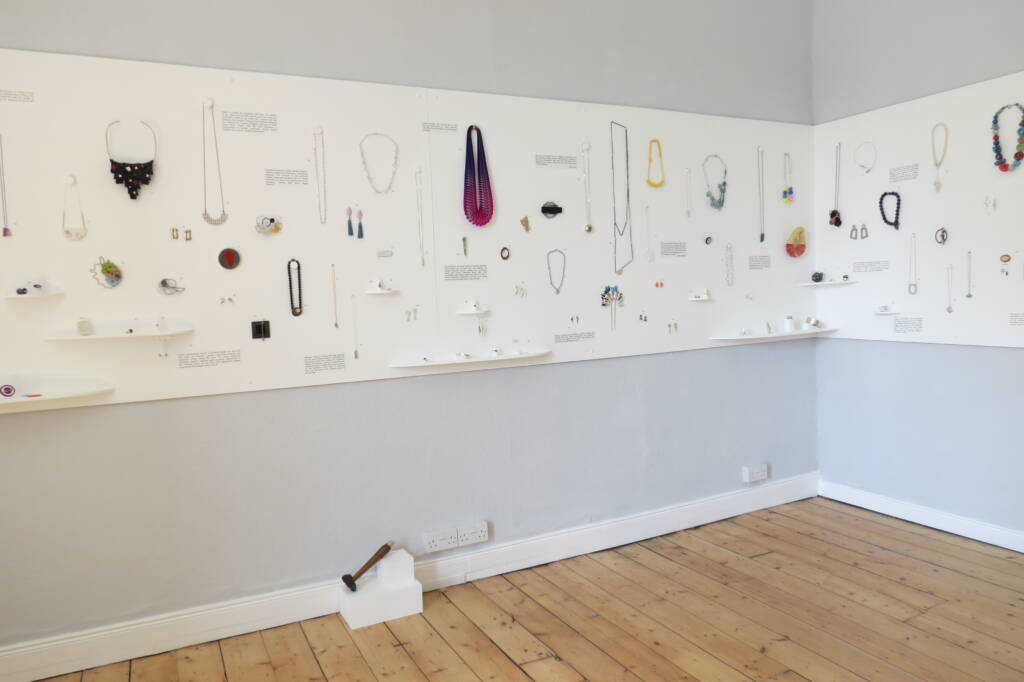
CD: Speaking of events, it really feels like they’ve been a big focus for you. As soon as you could safely host people again, you were inviting them in. What made that a priority for you?
IS: I always wanted to be able to have parties and people meeting here! Originally on my business plan I wasn’t actually doing as much of the organising and admin [of hosting events] myself but also maybe I didn’t really think about the realistic expectations of the planning that would go into having someone else in the space; so, in some ways [doing our own events] is better for us. Our Festive Boutique was a direct response to the fact that all the usual Christmas markets in 2020 had been cancelled, and that’s something we’re planning on making an ongoing thing. We did a big exhibition that Ieva led the way on in 2021 called 100 Jewels by 100 Women, where we invited artists – some full-time, but mostly people who juggle what they do alongside other jobs – who’d lived, worked or studied in Dundee to feature their work. More recently, we’ve been hosting events and workshops, and they’ve gone down great so far, but it’s actually been way harder work than I thought to get people into the space – it’s a product of just how small Dundee is I think, and maybe the after-effect of COVID and not starting with a bang.
CD: So what does the future look like for Double Door Studios? What are your plans?
IS: I think I just want to continually make this more stable and make sure I’ve got enough money to live on when I’m older. In terms of my own practice, I have been thinking more and more about getting an apprentice. It would be an investment in my future because it would be a way to stabilise the making part of my business more. I’ve always taken on interns but an apprentice is a big leap, it’s a gamble. Finding the right person who you can train up to be another you essentially, but also maybe finding someone who wants to incorporate a bit of their own thing into it, which could maybe develop my practice. Or do I hire somebody to do my bookkeeping and do more of that sort of thing instead? I want to outsource more of those jobs – I’ve always had an accountant but I’d love to have someone come in a couple hours a month and do my bookkeeping, to free up more time for making. But in saying all that, it’s good doing it yourself too, you know? You get to keep an eye on where the money’s all going and have a better handle on that.
For Double Door Studios as a space, I think the focus is just on keeping on finding ways to get people into the space. My plan was always to prioritise space for those in the first stages of their careers, but in some senses, because we’ve all got very comfy in here now, that’s changed a little bit. So maybe we’ll look at making that graduate desk a bit more of a priority again so that someone just starting can have the tools around them and the network to get going. I think I’m always just trying to keep my mind open about what we can do. It’s a flexible space, and primarily it’s a workshop for me to feel at home in.
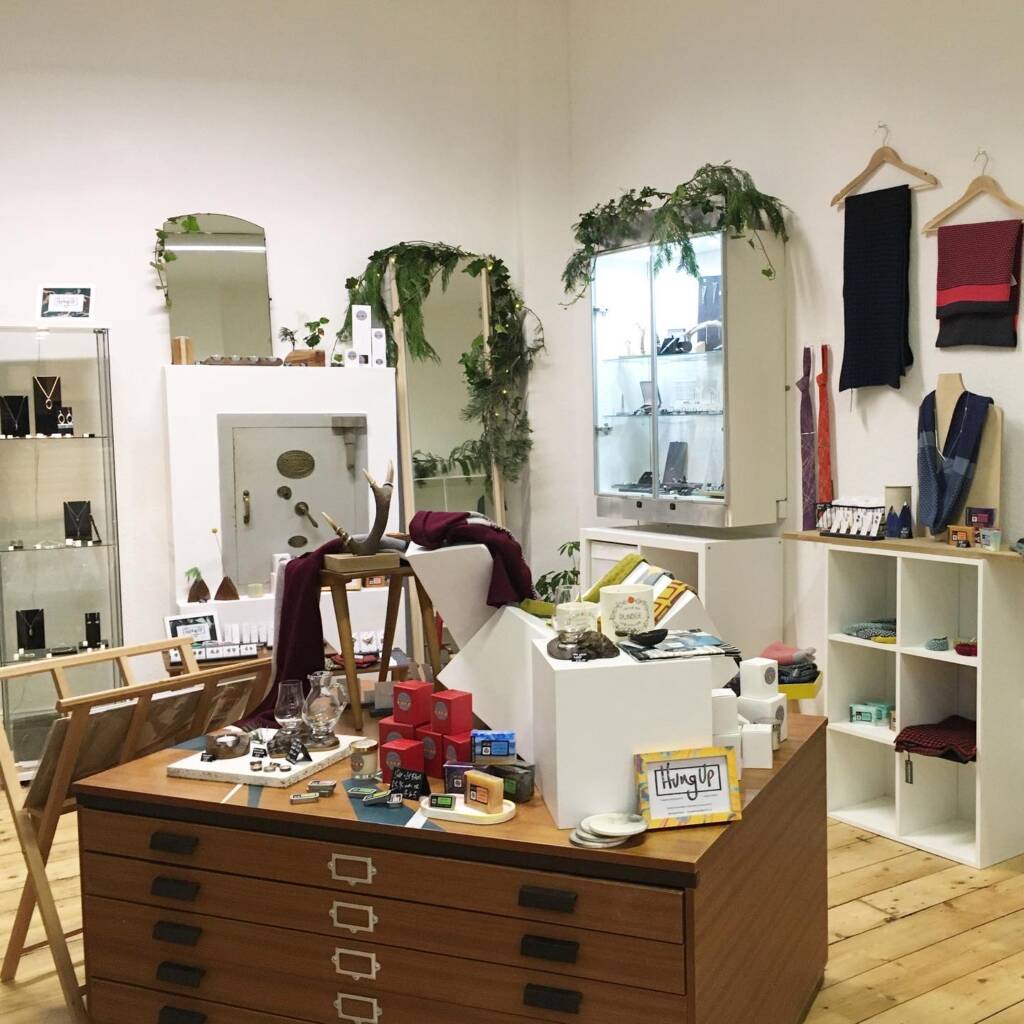
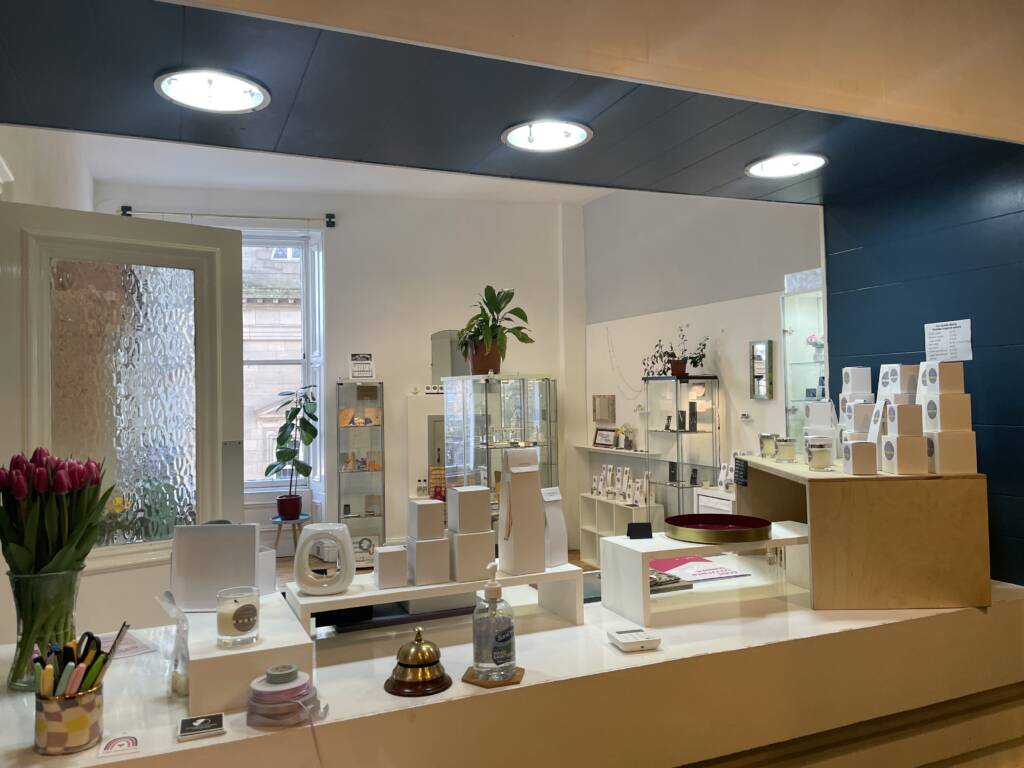
CD: Is there anything you’d love to see happening in the city that would support either your personal practice, or Double Door Studios more widely?
IS: I think a retail space that’s really focused on Dundee designers – almost like a Dundee tourist shop but with really great, well designed products – would be great. It’s something I have thought about, that if we were to extend in some way, maybe we would get a Double Door Studios window shop front, because right now, although we do the pop-up shops, we’re not a retail space. We’re primarily a workshop with a showroom. But things would have to change a lot to make that happen for us in terms of rents and the rates. If somebody else wanted to pick up on that, that would be great! But that’s maybe a pipe dream because of the way everything is, and where we are. Getting down to it, it feels as if nobody can afford to live just now, everything is so so tight for so many of us. But there are still people coming to Dundee with money, they just don’t know where to go or what to spend it on. They need to be led in.
For jewellers, I think we could actually all really benefit from having a trade jeweller based here. We’re all designers, which is probably a product of the art school, and we all do a bit of it for each other, but it’d be really good to have someone who was good at things like stone setting and engraving. I think they could easily employ themselves; they’d probably make far more than the rest of us do! And I guess it would take somebody who’s been trained outside Dundee to realise what we’ve got in this city and make the most of that gap. I think for creatives more generally, we just need to keep on speaking to each other, finding and sharing opportunities where we can. It would be great if opportunities were more linked up, but that would almost come a job role, so just sharing what we know with each other is important. If we could get just a couple more people to do something similar to what I’ve done, you know, I think it’d make a big difference and I’m happy to speak to anyone if they’ve got plans and want a little help or advice following through. There’s plenty of space in Dundee to use.
A big thank you to Islay for speaking with us and sharing so openly! Keep up to date with what Double Door Studios are up to on Instagram, Twitter and Facebook, or come along to any number of the events they’re currently running as part of Think Thursday! And whilst you’re here, why not catch up on our previous Collective in the City interviews with Make-That-A-Take Records, Volk Gallery, Elfie Picket Theatre, Biome Collective, Hotchpotch and CHIP Collective too?

If you would like to support us in creating even better content, please consider joining or supporting our Amps Community.